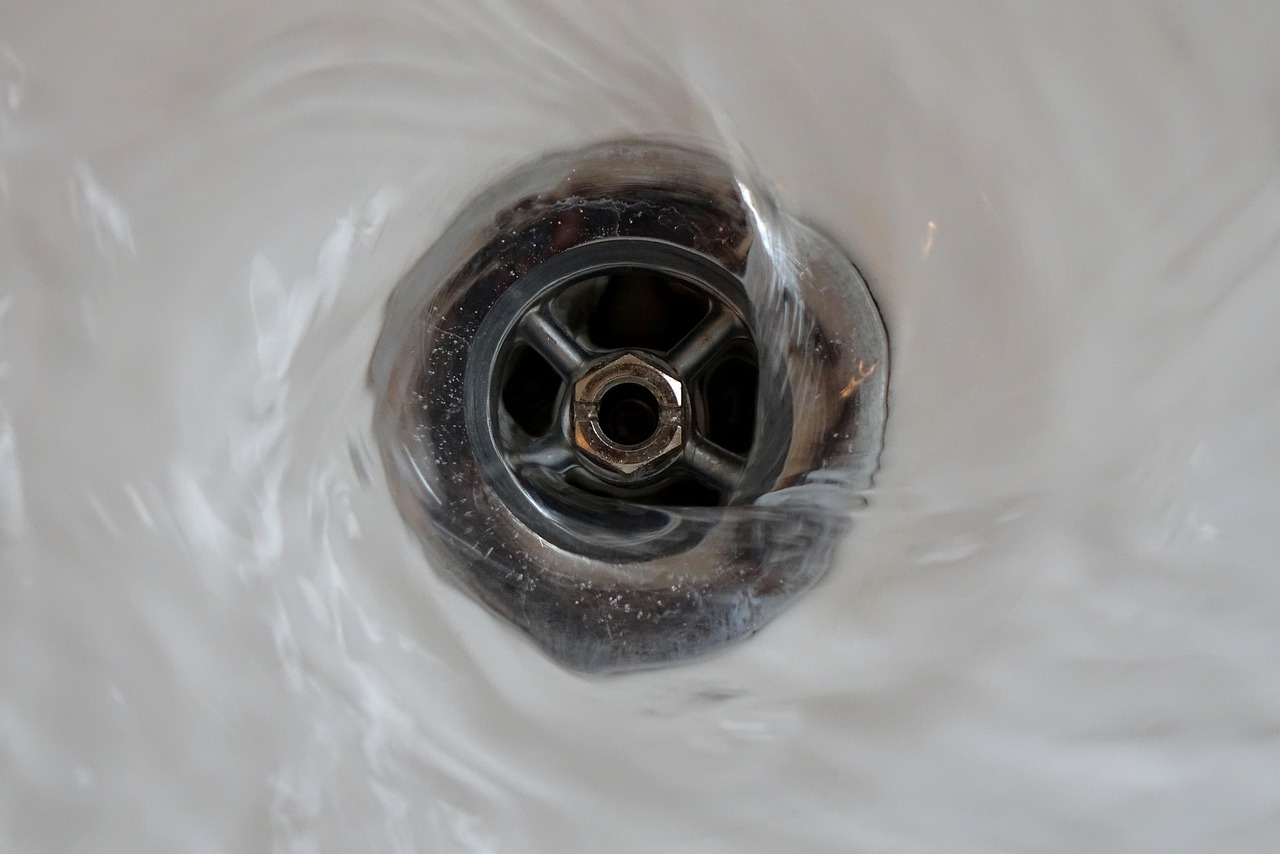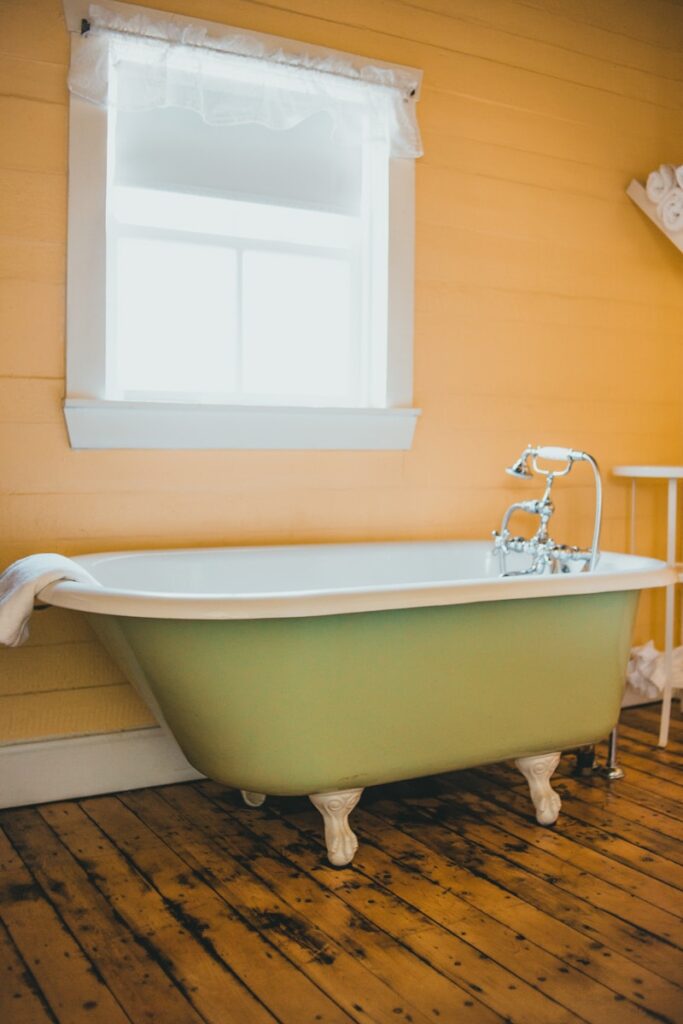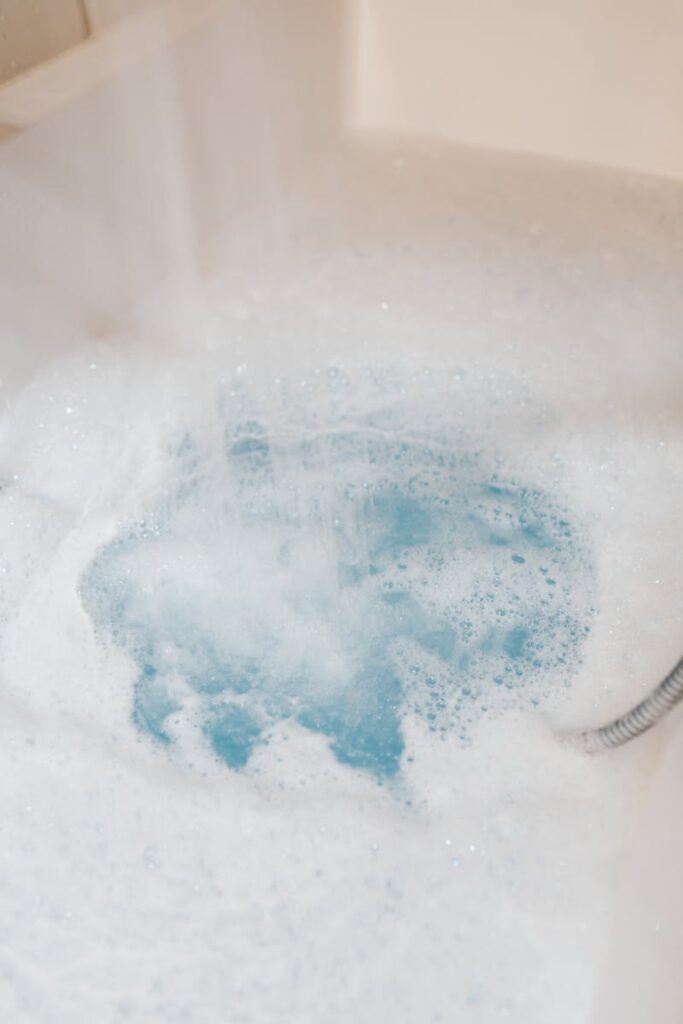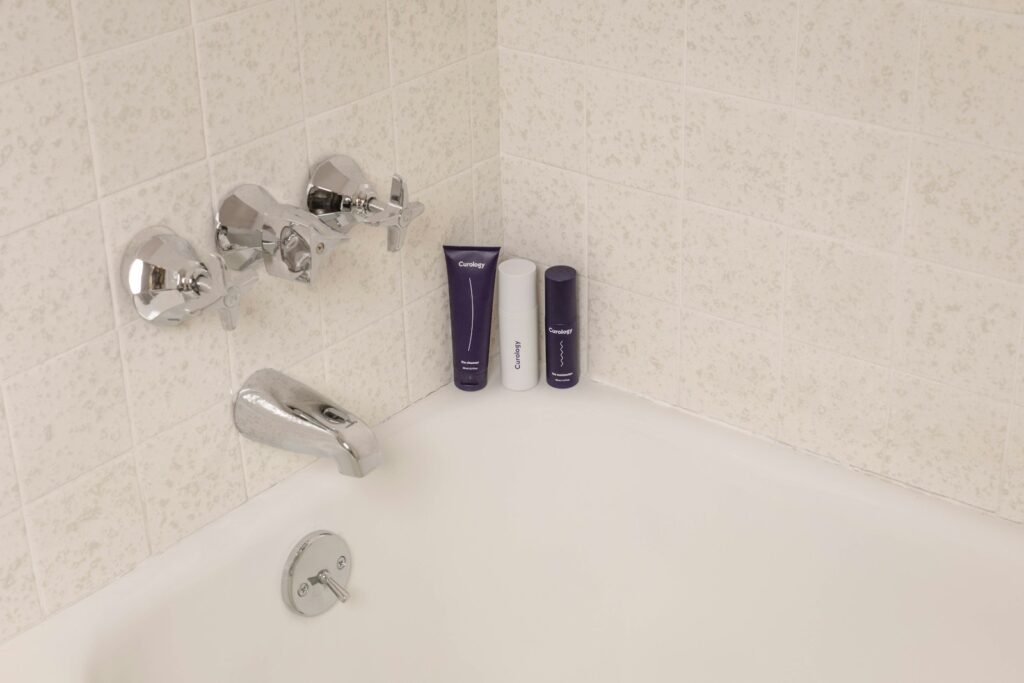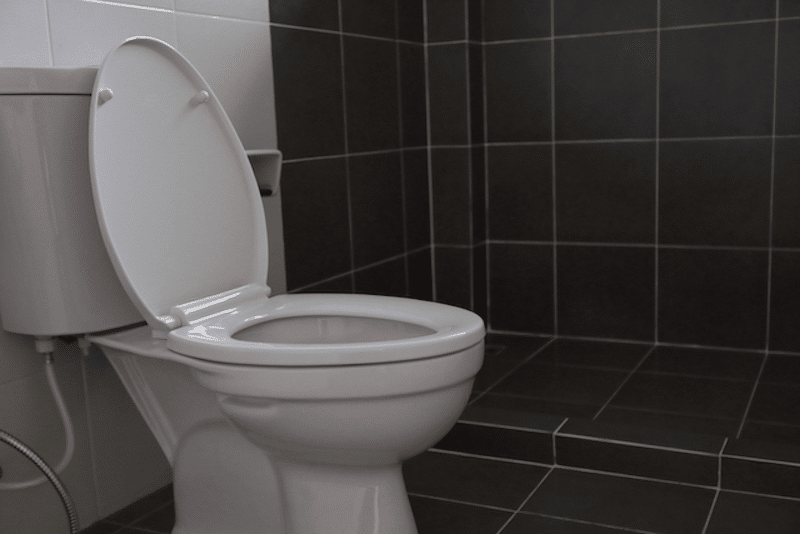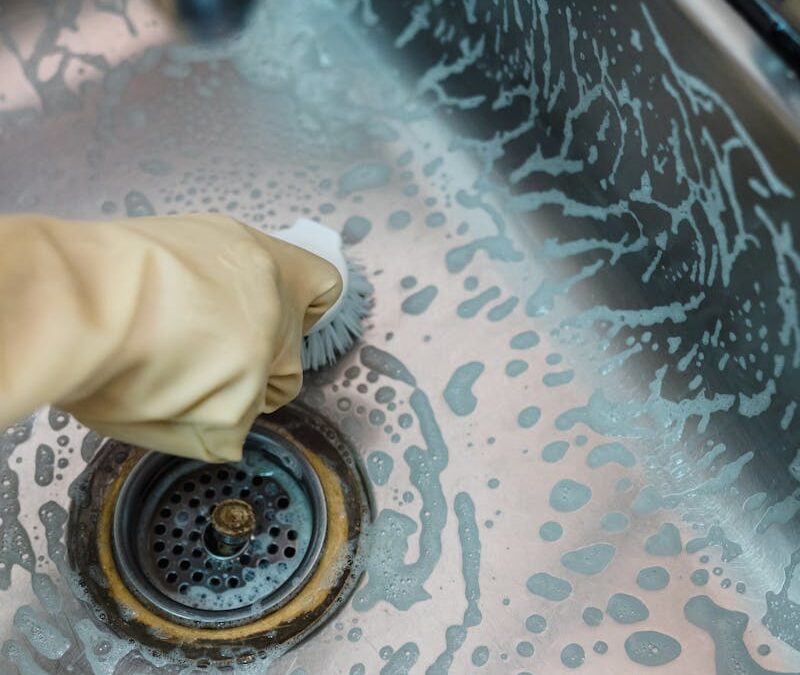Is your bathtub draining slower than usual, or worse, not draining at all? Do you know how to unclog a bathtub drain properly?
A clogged drain can quickly turn a relaxing shower into a messy, unpleasant experience with standing water pooling up around you. Luckily, most clogs can be tackled without the need for a professional plumber or expensive tools. With a little DIY know-how, some everyday household items, and a bit of patience, you can fix your clogged bathtub drain in no time.
This comprehensive guide will walk you through the tried-and-true methods to unclog a bathtub drain, prevent future clogs, and keep your plumbing system in tip-top shape.
Schedule Service Online
Get a free estimate so you know what you're signing up for
"*" indicates required fields
For Emergency Services Call: 410-255-9300
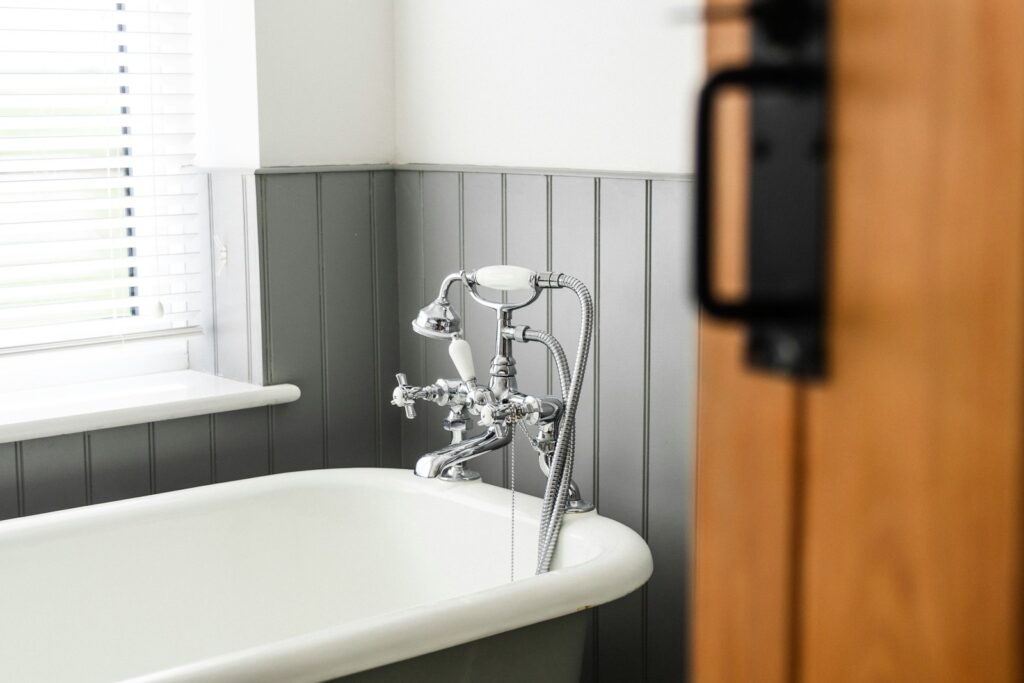
Dangers of Ignoring a Clogged Tub Drain
Ignoring a clogged bathtub drain may seem harmless at first, but it can lead to significant problems over time. Below are the key dangers associated with neglecting this issue:
Water Damage
When water cannot flow properly due to a clog, it often accumulates in the bathtub. Prolonged standing water can lead to overflow, causing damage to bathroom floors and adjacent rooms. This might also result in costly repairs to fix warped flooring, water-stained ceilings, or damaged walls.
Mold and Mildew Growth
Standing water and increased moisture create the perfect environment for mold and mildew to thrive. Not only does mold spread quickly, but it can also pose health risks, including respiratory problems and allergic reactions. Mold spores can be particularly hazardous for those with asthma or weakened immune systems.
Bad Odors
A clogged drain often traps soap scum, hair, dirt, and other debris. Over time, this buildup can start to decompose, emitting unpleasant odors throughout your bathroom. This smell can be difficult to eliminate, even after cleaning the surrounding surfaces.
Increased Pest Activity
Clogged drains filled with stagnant water and decaying debris can attract pests like drain flies or other insects. These pests use your clogged drain as a breeding ground, which not only exacerbates the nuisance but can also spread bacteria and germs throughout your home.
Long-Term Pipe Damage
Over time, clogs create added pressure on your plumbing system. This pressure can weaken your pipes and lead to cracks or bursts, causing leaks and significant damage. Ignoring the problem for too long can result in the need for expensive plumbing repairs or replacements.
Reduced Drain Efficiency
A partially clogged drain may drain water slowly, creating ongoing frustrations. Everyday tasks like bathing or cleaning become more inconvenient, impacting your daily routine. Small clogs can worsen over time, eventually causing a complete blockage.
Wasted Water Costs
Water sitting in your bathtub due to a clog means you might use excessive amounts of water trying to flush it down. This unnecessary usage could increase your water bill over time, adding an avoidable financial strain to your household budget.
Addressing a clogged bathtub drain sooner rather than later is essential to avoid these dangers. Proactive maintenance and clean-up can save you from costly repairs, health risks, and inconvenience down the line.
Common Causes of Clogged Bathtub Drains
Understanding what causes bathtub drain clogs can help you choose the right method to tackle the problem. The most common culprits include:
- Hair (especially long hair): The leading cause of most clogs is hair. It gets caught in the drain or drain pipe, tangling with other debris to form a blockage.
- Soap Scum and Grease: Residue from soap, body oils, and other products can solidify over time, creating a sticky film inside your pipes that traps debris.
- Debris and Dirt: Sand, dirt, and tiny particles often rinse off when you bathe, accumulating in your pipes over time.
- Foreign Objects: Items like rubber stoppers, drain plugs, or small toys sometimes fall into the drain unknowingly, creating blockages.
Once you’ve identified the potential cause, you’ll have a better idea of how to approach the problem.
Step-by-Step Solutions for Unclogging Your Bathtub Drain
1. Remove the Drain Strainer or Stopper
The first step is to inspect your drain. Whether you have a drain cover, a strainer, or a stopper, you’ll need to remove it to access the clog.
- Unscrew or pry off the drain strainer or drain plug according to the manufacturer’s instructions.
- Clean the drain area of any visible debris, like hair or soap scum.
For some clogs, simply removing the hair and debris trapped under the strainer might resolve the issue.
2. Flush the Drain with Boiling Hot Water
Did you know that boiling water is one of the easiest ways to clear some clogs, such as soap scum buildup?
- Boil a pot of water until it’s steaming.
- Carefully pour the boiling water directly down the bathtub drain in stages, waiting a few seconds between pours.
This method works best on grease or soap-related clogs but may not be effective for hair or more stubborn blockages.
3. Use Baking Soda and Vinegar
The baking soda and vinegar method is a natural and effective solution for clearing bathtub and sink drains without chemicals.
Here’s how:
- Pour 1 cup of baking soda down the tub drain.
- Follow it with 1 cup of white vinegar. You’ll notice bubbling or fizzing as the mixture activates.
- Cover the drain with a rubber stopper or the drain cover to keep the reaction contained.
- Leave the mixture to sit for about 30 minutes.
- Flush the drain with a pot of boiling hot water to break down any remaining debris.
4. Snake the Drain
For tougher clogs (such as large hairballs), a drain snake is a powerful tool that can make quick work of clearing a clogged drain. You can purchase one from your local hardware store.
Steps to use a drain snake:
- Insert the snake into the tub drain or overflow cover.
- Twist and push the snake to grab ahold of the obstruction inside the drain pipe.
- Once you feel resistance, slowly pull the snake back out, bringing the clogging material with it.
- Remove hair and other debris from the snake’s tip and repeat if necessary.
If you don’t have a drain snake, a drain claw or even a straightened wire hanger can work as a DIY alternative.
5. Use a Plunger
A standard household plunger is another effective way to unclog bathtub drains.
Here’s how to do it:
- Remove the drain cover and stopper.
- Fill the tub with enough water to cover the bottom of the plunger to create suction.
- Place the plunger over the drain and plunge vigorously, keeping a good seal.
- Lift the plunger to see if the water drains. Repeat the process until the clog is dislodged.
6. Try Liquid Drain Cleaner (Use with Caution)
If all else fails, you can try a liquid drain cleaner like Liquid Plumr or Drano. These products use harsh chemicals to dissolve build-ups in your pipes. However, they should only be used as a last resort since frequent use can damage pipes over time.
Follow the manufacturer’s instructions carefully:
- Pour the recommended amount of drain cleaner into the clogged drain.
- Allow it to sit as indicated on the label.
- Flush with plenty of water to clear the drain.
For environmentally conscious alternatives, opt for enzyme-based cleaners that are less harmful to pipes and the environment.
Preventing Future Clogs in Your Bathtub Drain
Once your tub drain is flowing freely, it’s important to take steps to prevent clogs from recurring. Here are some simple tips:
- Install a Drain Cover or Hair Catcher: Stop hair and larger debris from entering the drain by installing a drain cover or hair catcher over the bathtub drain.
- Clear the Drain Regularly: Remove hair and soap scum buildup around the drain after each shower or bath.
- Avoid Pouring Grease or Thick Substances Down the Drain: These materials can harden and stick to the sides of the drain pipe.
- Flush the Drain Weekly with Hot Water: Pouring hot water down the drain once a week helps keep soap scum and debris from hardening.
- Limit Chemical Cleaners: Stick to natural cleaning solutions like baking soda and white vinegar to maintain your plumbing system.
By implementing these habits, you minimize the risk of future bathtub clogs and extend the life of your plumbing.
Top 6 Products and Brands for Unclogging a Bathtub Drain
When it comes to dealing with stubborn bathtub clogs, having the right products can make all the difference. Here are six top-rated products and brands that can help you get the job done:
Drano Max Gel Clog Remover
A powerful and widely trusted product for removing tough clogs. Drano Max Gel works quickly and effectively on hair and soap residue. Purchase here.
Liquid-Plumr Pro-Strength Full Clog Destroyer
This industrial-strength formula is designed to cut through even the heaviest clogs. It’s safe for most pipes and perfect for deeper blockages. Purchase here.
FlexiSnake Drain Millipede
A reusable drain tool equipped with over 4000 micro-hooks to grab hair and debris from your drain. Perfect for eco-friendly cleaning without chemicals. Purchase here.
Green Gobbler Drain Clog Dissolver
Environmentally safe yet tough on clogs, this product uses a non-corrosive formula to break down hair, grease, and grime. Purchase here.
TubShroom Bathtub Drain Protector
This innovative tool not only removes clogs but also prevents them by catching debris before it enters the drain. Ideal for long-term maintenance. Purchase here.
General Pipe Cleaners Power-Vee Drain Cleaner
For professional-grade cleaning, this motorized drain cleaner is powerful enough to tackle stubborn clogs while being easy to operate. Purchase here.
These products offer a variety of solutions to address your bathtub drain clogs, whether you’re looking for chemical cleaners, manual tools, or preventive measures. Always consider the material and condition of your pipes when choosing a product.

When to Call a Professional Plumber Like MD Sewer And Plumbing
If none of these DIY methods work, or if you notice recurring clogs, it might be time to involve an expert. A professional plumber like those at MD Sewer and Plumbing can inspect your plumbing system, identify the root cause of the problem, and fix any deeper issues within the pipes or p-trap.
Look for signs such as:
- Frequent clogs in multiple drains (sink drain, shower drain, etc.)
- Foul smells coming from the drain
- Standing water that won’t disappear despite your efforts
Don’t hesitate to get help for issues beyond DIY solutions.
Final Thoughts On How To Unclog A Bathtub Drain
Clogged bathtub drains can feel like a major annoyance, but with the right tools and methods, you can handle most issues on your own. From using boiling water and vinegar to deploying a drain snake, you have plenty of options to clear any blockage. Remember, preventative maintenance like installing a hair catcher and cleaning your drain regularly can save you from dealing with future clogs.
If you’re facing a stubborn blockage that just won’t budge, it’s always best to seek help from a professional plumber. After all, a well-functioning plumbing system is key to keeping your home running smoothly.
Now roll up your sleeves, grab that baking soda, or head to the hardware store and tackle that clogged bathtub drain today!
